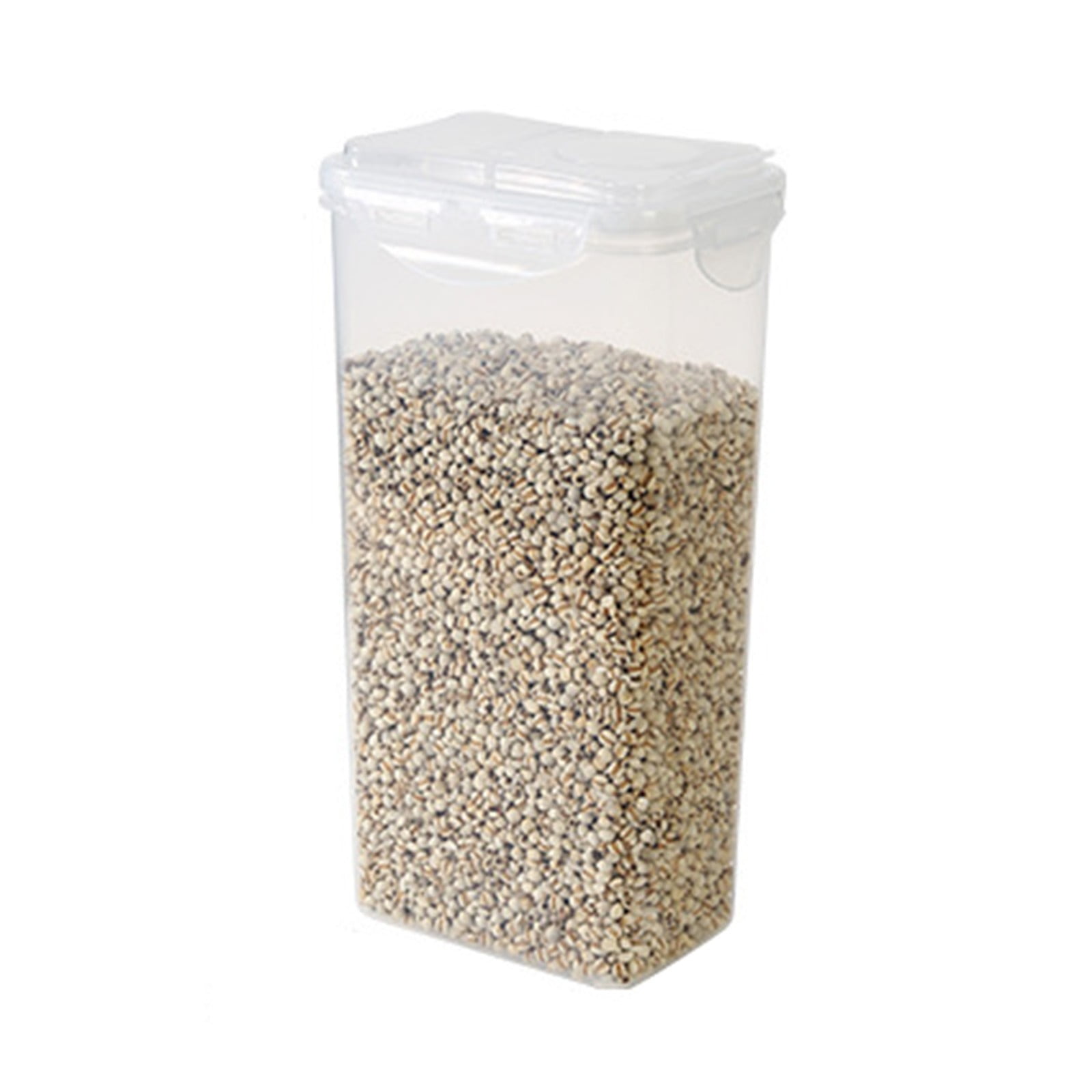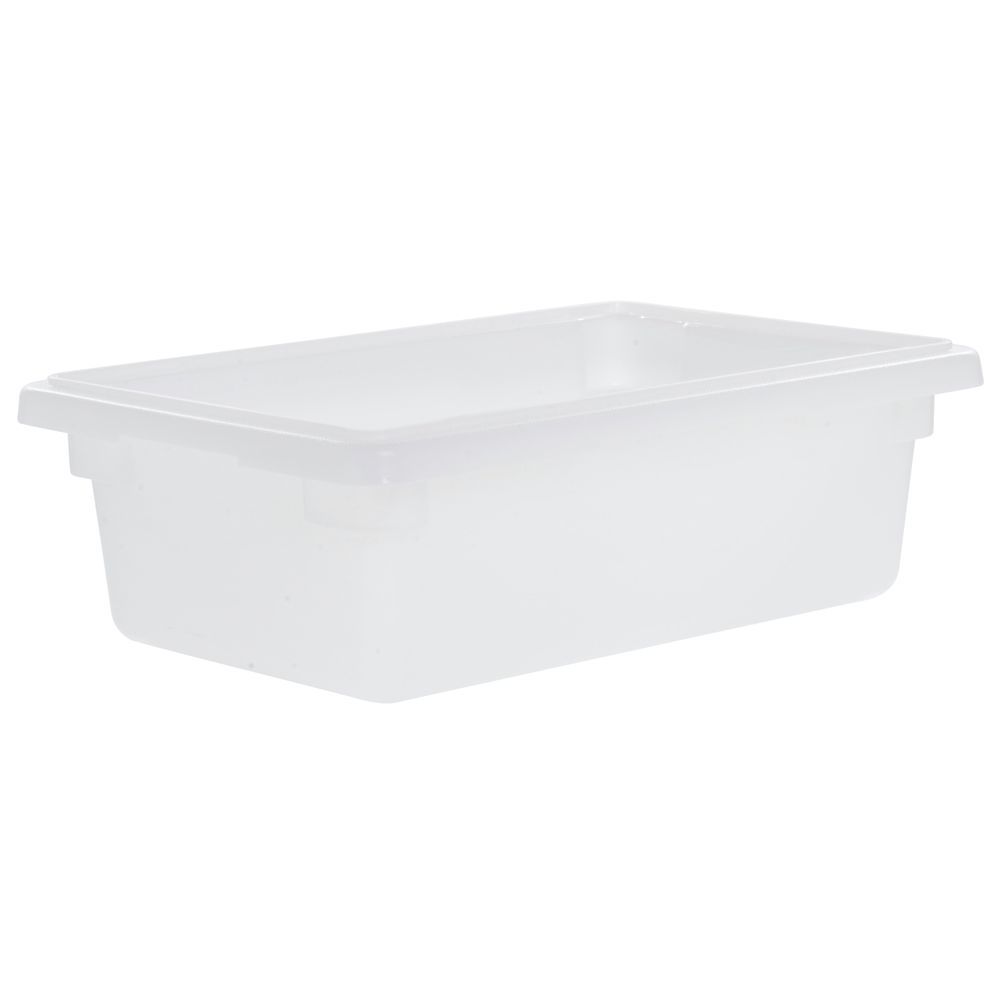The Role of Mass Plastic Containers in Effective Recycling Practices and Sustainability
Bulk plastic containers are indispensable to modern-day reusing efforts. Their layout boosts the efficiency of material collection and transportation, adding to sustainability goals. These containers not only enhance space however additionally aid in monitoring contamination degrees. Nonetheless, their implementation is not without challenges. Understanding the complete range of their influence exposes a complex connection between logistics and environmental obligation that necessitates further exploration.
Comprehending Mass Plastic Containers
Bulk plastic containers serve as a crucial part in various industries, facilitating the storage and transportation of goods. These containers are generally made from durable products such as high-density polyethylene (HDPE) or polypropylene, which offer durability and resistance to environmental elements. Their layout frequently includes attributes like stackability and modularity, permitting efficient usage of area during both storage space and transportation.
Industries such as agriculture, food processing, and making frequently make use of mass plastic containers as a result of their light-weight nature and simplicity of handling. The containers can be found in various dimensions and setups, providing to the particular demands of different items. Their versatility prolongs past simple capability; they can also be tailored with lids, takes care of, and labeling alternatives to improve usability - Bulk Plastic Containers. Therefore, bulk plastic containers play a critical duty in optimizing logistics and supply chain procedures throughout several markets, thus contributing to general efficiency and cost-effectiveness
Benefits of Using Bulk Plastic Containers in Recycling
The application of bulk plastic containers substantially boosts the effectiveness of the procedure when organizations focus on recycling efforts. These containers are developed to enhance space, enabling for the storage space and transportation of bigger amounts of recyclable materials. This leads to fewer trips to recycling centers, thus minimizing fuel usage and connected discharges.
In addition, bulk plastic containers are resistant and resilient to different ecological variables, guaranteeing that products stay shielded throughout handling and transportation. Their light-weight layout further contributes to decrease transport expenses.
The uniformity of these containers promotes much better sorting and processing of recyclable products, which can boost total recycling prices. Organizations that embrace bulk plastic containers also demonstrate a commitment to sustainability, positively influencing their brand name photo. Ultimately, these advantages not just simplify reusing methods yet additionally contribute to more comprehensive environmental goals
Just How Mass Plastic Containers Facilitate Material Collection
Effective material collection is substantially boosted by the use mass plastic containers, as they offer a structured and reliable option for collecting recyclable items. These containers are made to suit big volumes of products, which simplifies the sorting and storage space process. Their stackable layout takes full advantage of room application, making it much easier for facilities to arrange recyclables without mess.
In addition, mass plastic containers are resilient and weather-resistant, enabling exterior placement without degradation. This durability guarantees that products stay protected till they are accumulated for processing.

The uniformity in dimension and form of these containers facilitates standardization across collection factors, making it possible for better tracking of recyclable volumes. Moreover, their clear nature permits for very easy visibility of materials, aiding in the monitoring of contamination degrees and assuring that just suitable products are gathered. Generally, mass plastic containers play an important function in simplifying the product collection process, thus advertising reliable reusing methods.
Transport Effectiveness and Environmental Impact
Transport effectiveness plays a vital role in the recycling process, specifically with the optimization of lots capability wholesale plastic containers. By maximizing the volume of product transported, firms can greatly minimize the variety of journeys needed, thus minimizing their carbon impact. This approach not just boosts operational efficiency but also adds to a lot more lasting ecological practices.

Enhancing Load Capacity
Although enhancing load capacity is frequently neglected, it plays an essential duty in enhancing transportation performance and minimizing environmental influence in reusing methods. By making the most of the quantity that bulk plastic containers can hold, recycling operations can reduce the number of trips needed for transportation. This not just reduces gas usage however additionally reduces the damage on vehicles. Efficient tons administration allows centers to utilize area successfully, making certain that each transportation cycle is as effective as feasible. Additionally, well-optimized tons can result in better negotiations with logistics suppliers, potentially lowering total prices. Eventually, boosting tons capacity adds to an extra lasting recycling system by cultivating reliable resource usage and minimizing waste generated during transportation.
Reducing Carbon Impact
As recycling procedures endeavor to reduce their environmental effect, decreasing the carbon impact associated with transport arises as an essential objective. Bulk plastic containers play a crucial role in achieving this objective by improving lots performance and maximizing logistics. Their lightweight yet sturdy style permits maximum cargo room application, reducing the number of journeys called for to deliver materials. By combining shipments, reusing centers can lower gas intake and greenhouse gas emissions. In addition, strategically situating recycling centers decreases transport ranges, additionally reducing carbon results. Utilizing fuel-efficient vehicles and different power resources boosts overall sustainability. By integrating these techniques, the recycling market can considerably lessen its carbon footprint, adding to a much more lasting future.
Obstacles in using Mass Plastic Containers

Contamination Problems
Contamination concerns stand for a significant challenge in the reliable usage of mass plastic containers within recycling techniques. These containers frequently accumulate deposits from previous contents, causing blended materials that can prevent the reusing process. Pollutants such as food waste, chemicals, or non-recyclable materials can jeopardize the honesty of the whole set, resulting in increased disposal expenses and decreased reusing rates. Additionally, inappropriate cleansing or sorting can intensify these issues, making it challenging for reusing facilities to refine materials efficiently. The presence of impurities not only affects the high quality of recycled products but additionally threatens the general sustainability efforts intended at lowering plastic waste. Attending to these contamination challenges is critical for improving the effectiveness of mass plastic container recycling.
Recycling Framework Limitations
Inefficiency in recycling infrastructure postures considerable obstacles for the efficient monitoring of mass plastic containers. Lots of reusing facilities lack the ability to process big volumes of these containers effectively, resulting in enhanced expenses and hold-ups. Additionally, poor arranging modern technologies usually result in contamination, as mass containers might be blended with various other products, complicating the reusing procedure. Limited transport options additionally hinder the motion of mass plastic containers to appropriate recycling centers, leading to increased landfill waste. Additionally, a lack of standardized protocols for bulk container recycling develops confusion among consumers and organizations, even more complicating initiatives to advertise sustainability. Resolving these facilities restrictions is essential to improve reusing practices and make the most of the potential of bulk plastic containers in a round economic situation.
Finest Practices for Carrying Out Mass Plastic Containers
They should focus on a check calculated strategy that boosts performance and decreases contamination risks when companies consider implementing bulk plastic containers in their reusing techniques. Initially, picking the proper container dimension and type is vital to fit the quantity of products being refined. Organizations must likewise establish clear labeling and signage to lead customers on appropriate disposal techniques, minimizing confusion and errors. Normal training sessions for team can additionally strengthen these techniques, guaranteeing everyone understands their roles in maintaining recycling integrity.
Additionally, companies should carry out a regular maintenance routine to inspect look at this web-site and clean containers, preventing the accumulation of pollutants. Partnering with neighborhood reusing centers can additionally improve the collection procedure, ensuring that materials are effectively refined. Lastly, organizations ought to monitor and examine their reusing metrics, utilizing this information to fine-tune methods with time and advertise continuous enhancement in their sustainability initiatives.
The Future of Mass Plastic Containers in Lasting Practices
As companies progressively prioritize sustainability, the function of bulk plastic containers in recycling methods is readied to advance considerably. Technologies in materials science are resulting in the development of recyclable and biodegradable options, enhancing the ecological benefits of bulk plastic containers. On top of that, the execution of closed-loop systems will certainly permit much easier collection and repurposing of these containers, minimizing waste and source usage.
Technological developments, such as clever radar, will allow business to monitor the lifecycle of bulk containers, boosting efficiency in reusing procedures. As consumer need for sustainable techniques expands, businesses will likely embrace mass plastic containers developed for reuse and long-lasting value. Furthermore, cooperation in between federal governments and markets will certainly cultivate the facility of standard recycling methods, guaranteeing that mass containers are effectively integrated right into broader sustainability campaigns. In general, the future of mass plastic containers shows up appealing, with substantial capacity for contributing to a round economic situation.
Often Asked Inquiries
Exactly How Are Bulk Plastic Containers Made and What Materials Are Utilized?
Bulk plastic containers are typically made from high-density polyethylene (HDPE) or polypropylene (PP) These materials are processed via injection molding or impact molding methods, causing resilient, lightweight containers suitable for different storage space and transportation requirements.
Can Bulk Plastic Containers Be Reused Multiple Times Prior To Recycling?
Yes, bulk plastic containers can be reused numerous times prior to recycling. Their sturdiness and layout enable repeated use in numerous applications, advertising sustainability and resource effectiveness while minimizing the demand for brand-new containers.

What Accreditations Exist for Mass Plastic Containers in Recycling?
Various accreditations for mass plastic containers include the Recycling Partnership's accreditation, the Cradle to Cradle Qualified ™ standard, and the Lasting Packaging Coalition's guidelines, guaranteeing containers meet particular environmental and recyclability requirements for efficient recycling.
Exactly How Do Bulk Plastic Containers Compare to Other Recycling Storage Options?
Bulk plastic containers supply higher longevity and capacity compared to other reusing storage space options, reducing the threat of contamination and facilitating efficient transport. Their layout supports better company, improving total performance in reusing procedures.
What Is the Lifespan of a Mass Plastic Container in Recycling Processes?
The lifespan of a mass plastic container in reusing processes generally varies from 5 to 10 years, relying on use, material quality, and ecological conditions, permitting for several cycles of usage prior to ultimate disposal or recycling.
When companies focus on reusing efforts, the usage of mass plastic containers significantly boosts the efficiency of the procedure. Transport performance plays a crucial function in the recycling process, specifically through the optimization of load i thought about this ability in bulk plastic containers. The use of bulk plastic containers in recycling practices faces substantial challenges, specifically worrying contamination issues and limitations within reusing framework. Contamination concerns stand for a substantial obstacle in the effective use of bulk plastic containers within reusing practices. When organizations consider implementing bulk plastic containers in their recycling techniques, they ought to prioritize a critical approach that enhances effectiveness and decreases contamination dangers.